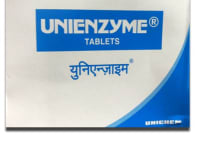
No interaction found

WEIGH RISKS VS BENEFITS
Amilab Eye Drop is unsafe to use during pregnancy.There is positive evidence of human fetal risk, but the benefits from use in pregnant women may be acceptable despite the risk, for example in life-threatening situations. Please consult your doctor.

SAFE
Amilab Eye Drop is safe to use during lactation. Human studies have shown that either the drug does not pass into the breastmilk in significant amount or is not expected to cause toxicity to the baby.

Amilab Eye Drop may make you feel dizzy, sleepy, tired, or decrease alertness. If this happens, do not drive.

CAUTION
Amilab Eye Drop should be used with caution in patients with kidney disease. Dose adjustment of Amilab Eye Drop may be needed. Please consult your doctor.

Amilab Eye Drop is probably safe to use in patients with liver disease. Limited data available suggests that dose adjustment of Amilab Eye Drop may not be needed in these patients. Please consult your doctor.
Uses of Amilab Eye Drop
Amilab Eye Drop is used in the treatment of serious bacterial infections.
How to use Amilab Eye Drop
This medicine is for external use only.Take it in the dose and duration as advised by your doctor. Check the label for directions before use. Hold the dropper close to the eye/ear without touching it. Gently squeeze the dropper and place the medicine inside the lower eyelid or ear. Wipe off extra liquid.
How Amilab Eye Drop works
Amilab Eye Drop is an antibiotic. It kills bacteria by inhibiting synthesis of essential proteins, required by bacteria to carry out vital functions.
Common Nausea, Vomiting, Diarrhoea, Skin rash, Hearing loss, Balance disorder (loss of balance).
Expert advice for Amilab Eye Drop
It is given as a drip (intravenous infusion) or as an injection directly into a vein or into a muscle. Doctor will ensure that patient should be well hydrated before and during amikacin treatment.
Do not drive because you may feel sleepy or dizzy while being treated with amikacin.
Amikacin should be used with caution in premature and newborn babies.
During treatment patient may undergo blood, urine, or hearing tests to look for signs of side effects.
Do not start or continue the amikacin and consult your doctor:
If you have a kidney problem, or hearing difficulties or tinnitus (ringing in ears)
If you are pregnant or planning to become pregnant or breastfeeding.
Q. Is Amilab dialyzable?
Yes, Amilab is a dialyzable drug
Q. Is its injection painful?
Its injection is painful. Please consult your doctor before taking the drug
Q. What organisms does Amilab cover?
Amilab is mainly effective against aerobic gram-negative bacteria such as pseudomonas as well as some gram-positive bacteria such as staphylococcus including methicillin-resistant strains but it is not the drug of choice for infections due to staphylococcus bacteria.
Q. Is amikacin sulfa, penicillin or an aminoglycoside drug?
Amikacin does not contain sulfa and is not a penicillin drug. It is a semisynthetic aminoglycoside
Q. Is Amilab ototoxic?
Yes, Amilab is ototoxic
Q. Does Amilab need to be refrigerated?
Amilab should be stored at or below 25°C. It should not be frozen
Flagship Biotech International
₹7/ml of Eye Drop Out of stock


 Amilab Eye Drop
Amilab Eye Drop  Bookmark
Bookmark





















